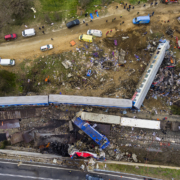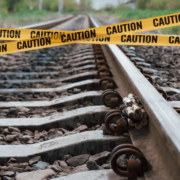The Importance of Keeping Accurate Records in a Railroad Accident Case
Railroad accidents, while not as frequent as road accidents, can result in some of the most severe injuries, and pursuing injury compensation against railroad companies typically involves an arduous and complicated legal process. One factor that can make or break your railroad injury claim is maintaining thorough records.
Complete documentation of your accident, medical treatment, lost income, and other losses provides crucial evidence for claims. Railroad companies almost always dispute liability, so your records must prove your case.
The Role of Accurate Records in Railroad Accident Cases
Accidents, especially involving the railroad, bring with them a whirlwind of emotions and consequences. Amidst the chaos, detailed records become increasingly important and make it more likely that the victim will be able to obtain just compensation.
Evidence Collection
- Records as Proof: Accurate records act as undeniable proof of the incident’s specifics, any hazards, and the resultant injuries.
- Building a Narrative: They help in painting a clear picture, from the accident’s occurrence to its aftermath. This can be instrumental when presenting a personal injury claim.
Medical Treatment
- Showcasing Severity: Medical records, detailing the injuries sustained and the treatment administered, reveal the injury’s severity.
- Substantiating Claims: These records substantiate claims, ensuring the injured receive appropriate compensation covering their medical expenses and rehabilitation.
Compensation Calculation
- Detailing Financial Impacts: With detailed records, calculating compensation becomes more streamlined. They encompass medical expenses, loss of wages, and other financial burdens caused by the accident.
- Fair Compensation: A well-documented claim stands a better chance of achieving fair compensation, making the recovery journey smoother.
Safety Enhancements
- Highlighting Problem Areas: Records can shed light on problem areas needing immediate attention and corrective actions.
- Setting Precedents: Accurate record-keeping after an accident sets a precedent, ensuring future incidents are recorded with equal diligence.
Crucial Aspects to Document
While all records are essential, some play a more pivotal role, especially when pursuing legal avenues or ensuring safety regulations are met.
Medical Documentation: The aftermath of an accident can be overwhelming. It’s crucial to focus on medical care and ensure every aspect is documented. This includes:
- Immediate medical attention was provided.
- Details of injuries, their extent, and potential long-term impacts.
- Medical treatment, from immediate first aid to extensive medical procedures.
- A comprehensive account of medical expenses incurred.
Incident Reports: Crafting a comprehensive report about the incident is a meticulous task, but it is important to follow through with it. Here is some of the most relevant information that should be collected:
- Specifics of the accident: What, where, when, and how it happened.
- Video footage or photographic evidence, if available.
- Eyewitness accounts or testimonials, which can substantiate the claim.
Workplace Details: For accidents that arise from workplace lapses or hazards, keeping accurate records is vital. This involves:
- Documenting work-related injuries or occupational injuries and illnesses.
- Communication records between workers, managers, and supervisors regarding safety procedures and protocols.
- Any pre-existing knowledge (on the part of the employer) of hazards or safety lapses.
OSHA Regulations: Compliance with OSHA regulations is mandatory, and any violations need to be thoroughly documented. Such records:
- Highlight any deviations from standard protocols.
- Provide insights into systemic issues or lapses that might have contributed to the accident.
- Serve as evidence in determining liability and negligence.
Insurance Communication: Engagements with insurance companies are often wrought with complications, and this should all be documented as well. Important insurance information may include:
- Claims submitted and their status.
- Communication logs, including emails, phone calls, and in-person meetings.
- Any disputes or challenges raised by the insurance company.
Dangers of Inadequate Record-Keeping in a Railroad Injury Case
Overlooking the importance of record-keeping can be detrimental to your injury claim in a number of ways:
- Loss of Crucial Evidence: Incomplete or inaccurate records can lead to the loss of vital evidence. This can weaken the case, making it challenging to determine liability or claim compensation.
- Diminished Compensation: A lack of detailed records can result in reduced compensation, which might fail to cover medical expenses and other associated costs.
- Safety Oversights: Inadequate records might mean safety lapses remain unaddressed. This can lead to recurrent accidents, putting more lives at risk.
Contact Our Skilled and Knowledgeable Railroad Accident Lawyers
The seasoned attorneys at Burge and Burge are committed to helping railroad injury victims recover damages to cover medical bills, lost income, and pain and suffering. We recognize no amount of money can undo what happened, but financial compensation can help ease the burden and ensure that those responsible for your injuries are held fully accountable.
To explore your legal options after a railroad collision or worksite injury caused by negligence, contact us for a free consultation. We will immediately begin gathering the documentation needed to pursue rightful compensation.








Leave a Reply
Want to join the discussion?Feel free to contribute!